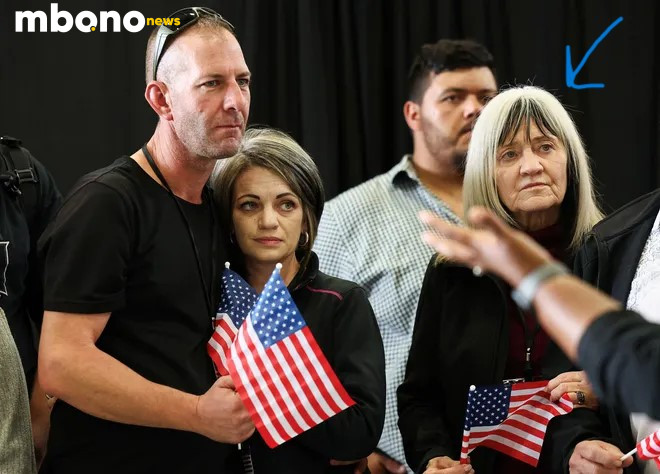A 52-year-old Afrikaner woman from Gqeberha, Jacqueline Botha, has become the face of a heated immigration controversy after allegedly using the U.S. refugee resettlement programme not for protection—but to reunite with her husband already living in the United States.
Botha left her comfortable middle-class life in South Africa along with her three children, joining a group of 49 white South Africans who claimed they were fleeing racial persecution. But questions surrounding her true intent have sparked widespread skepticism and accusations of abusing the asylum system.
Critics argue that Botha’s move wasn’t about fear—but rather love. “This wasn’t an escape—it was a reunion,” wrote one U.S. immigration advocate online, referring to her husband’s long-standing residence in the U.S.
The case has also brought renewed attention to a Trump-era executive order that controversially granted refugee status to white South African minorities citing racial discrimination. While the policy was introduced as a lifeline for those claiming persecution, detractors warn it’s now being manipulated for personal gain, undermining the legitimacy of real asylum seekers.
“It’s a free ticket disguised as persecution,” read one viral post on social media, as users accused Botha of exploiting a “soft spot in the system.”
Immigration officials have not confirmed whether an investigation is underway, but the backlash has already reignited debate over racial dynamics in South African emigration, the integrity of asylum channels, and whether U.S. policies are being twisted into tools of convenience.
As Jacqueline Botha settles into life in America, her story leaves a trail of controversy behind—blurring the line between protection and privilege in one of the world’s most contentious immigration systems.
